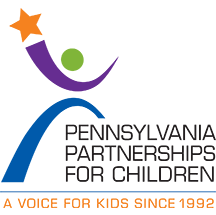A new report from the Economic Research Service (ERS) at the U.S. Department of Agriculture found that most (87 percent) of the recent population growth in places with wildfire risk has been among persons age 60 and older. Already, the proportion of older people living in places with more wildfire risk is higher than in the population at large. In rural areas with the greatest wildfire risk, 35 percent of people living in those areas are age 60 and older. The report examines population aging and wildfire risk for States, counties, and fire management areas.
New Report: Oral Health Spending in the United States
A study recently published in the Journal of the American Medical Association (JAMA) explores health care spending and utilization in the United States from 2010-2019. The investigators founds that spending for oral disease was $93 million, which was higher than spending for heart disease.
Click here for the oral health summary of the article.
Click here to read the full article.
New Rural Health Value Resource Published: Introduction to Rural Clinically Integrated Networks

The Rural Health Value team is pleased to share a new resource, entitled Introduction to Rural Clinically Integrated Networks (CINs). The purpose of this Rural Health Value topic brief is to define CINs, describe common CIN characteristics, and explore the unique value-based care advantages a rural CIN may bring to its members. The conclusion is that a collaboration of independent rural HCOs, incorporated as a CIN, can achieve the scale and develop the infrastructure necessary to successfully participate in value-based care and payment opportunities. Furthermore, CINs can be a powerful vehicle to deliver better rural health care, healthier rural people, and smarter spending.
Related resources on the Rural Health Value website:
- A Rural Accountable Care Organization’s Journey. For more than a decade, South East Rural Physicians Alliance Accountable Care Organization (SERPA-ACO) – a physician-led ACO that includes 16 physician-owned clinics in Nebraska – has been leveraging health care payment and delivery models to provide high quality, comprehensive, coordinated, and patient-centered care at a lower cost.
- Rural Value-Based Care – The Payer Perspective, Rural Health Value Summit Report. The Rural Health Value team convened professionals and executives from national and regional health care payer organizations to share and explore insights, innovations, successes, and challenges in rural health value-based care (VBC) contracting. This report summarizes challenges and solutions followed by suggestions for rural health care organization leaders from the Summit participants.
Rural Health Value facilitates the transition of rural healthcare organizations, payers, and communities from volume-based to value-based health care and payment models. Visit www.ruralhealthvalue.org
Contact information: Clint MacKinney, MD, MS, Co-Principal Investigator, clint-mackinney@uiowa.edu
Medicaid Cuts Would Cost Hospitals Billions, Spike Uncompensated Care Costs: Report
From Becker’s Financial Management
Hospitals and health systems could face severe financial consequences if Congress moves forward with proposed Medicaid funding cuts, with new research projecting an $80 billion revenue loss for providers in 2026 and a sharp rise in uncompensated care costs.
This month, the Senate is expected to vote on a budget resolution passed by House Republicans on Feb. 25. The legislation directs the Energy and Commerce Committee, which oversees Medicare and Medicaid, to identify $880 billion in savings over the next 10 years.
The resolution does not specify how the committee must achieve these savings, but Medicare and Medicaid account for the largest share of its oversight. The Congressional Budget Office has said that reaching the $880 billion healthcare savings target over the next decade would likely require significant cuts to Medicaid or the Children’s Health Insurance Program.
A March 11 report from the Urban Institute and the Robert Wood Johnson Foundation analyzed the impact of potential federal funding reductions for Medicaid expansion programs. The findings suggest that if all 41 states that expanded Medicaid eligibility over the past decade were to drop the program in response to federal cuts, nearly 11 million people would lose coverage, leading to widespread financial strain on healthcare providers.
The analysis projects hospitals would bear the brunt of revenue cuts, facing a $31.9 billion decline in 2026 alone. At the same time, the cost of uncompensated care would rise by $6.3 billion. The study also forecasts:
- $20.9 billion less spent on prescription drugs
- $20.7 billion less on other healthcare services, including dental care, home healthcare and services from non-hospital providers
- $6.4 billion less on office-based physician services
The financial hit would not be evenly distributed, with some states — Arizona, Indiana, New Mexico, New York, North Carolina, North Dakota, Oklahoma and Oregon — facing healthcare spending cuts exceeding 6%. Researchers warn such reductions could be particularly devastating for rural hospitals, where Medicaid expansion has played a critical role in maintaining financial viability.
Medicaid expansion, introduced under the ACA, covers millions of working Americans who earn modest incomes but do not receive employer-sponsored insurance. The federal government currently funds 90% of the costs for states that opt into the expansion. If funding is cut, states may be forced to reconsider their participation, which could have far-reaching consequences beyond coverage loss, according to the report.
“As Republicans in Congress consider significant cuts to the Medicaid program, it is important that federal, state, and local policymakers and stakeholders consider potential adverse effects on healthcare coverage, access and affordability, and health providers,” Fredric Blavin, senior fellow at the Urban Institute, said in a news release.
Beyond the direct impact on hospitals and patients, the study underscores potential ripple effects across local economies. Katherine Hempstead, senior policy adviser at the Robert Wood Johnson Foundation, noted that hospitals are often the largest employers in their communities.
“A funding reduction of this magnitude would not only cause a massive coverage loss but would also be financially devastating for hospitals and other healthcare providers,” Hempstead said. “Hospitals are major employers and are often the economic bedrock of their communities. These cuts would have major ripple effects on local economies, especially in rural areas.”
Click here for more details on the report.
Pennsylvania Child Care Fact Sheets and Online Mapping Tool Released for 2025

Every child deserves an equal opportunity for quality early care and education in their earliest years to ensure they are well prepared to learn, grow, and succeed. While the child care sector has been facing a workforce shortage impacting access to high-quality child care for families in recent years and particularly since the pandemic, we are hopeful the Governor’s proposed $55 million recruitment and retention effort will be included in final budget negotiations. Our 2025 interactive maps and corresponding fact sheets for the Start Strong PA campaign are now available and show data about the workforce, high-quality access, and quality. Fact sheets are available by county, school district, and legislative district.
Key data points include:
- The average annual salary of child care workers in 2023 was $29,480, which is over $39,000 less than the average annual salary of kindergarten teachers.
- Of the 177,710 eligible children under 5 years living in Pennsylvania, only 28% access the Child Care Works subsidized child care program. Of these 49,225 children, only 53% are enrolled in high-quality child care.
- Of Pennsylvania’s 104,470 eligible infants and toddlers, only 23% access the Child Care Works subsidized child care program. Of these 24,292 children, only 50% are enrolled in high-quality child care.
- Support the proposed investment of $55 million in a new and recurring Child Care Recruitment and Retention line item to grant licensed child care providers participating in the child care subsidy program an additional $1,000 per educator.
- To more fully address the child care staffing crisis and its impact on working families, businesses, and the economy, consider an investment above the proposed $55 million.
As part of the 2025-26 final state budget, Pennsylvania policymakers should:
- Support the proposed investment of $55 million in a new and recurring Child Care Recruitment and Retention line item to grant licensed child care providers participating in the child care subsidy program an additional $1,000 per educator.
- To more fully address the child care staffing crisis and its impact on working families, businesses, and the economy, consider an investment above the proposed $55 million.
Click here to access the fact sheets and online maps.
Large Healthcare Companies Redistribute Most Profits to Shareholders, Study Finds
Researchers suggested that policymakers encourage reinvestment of capital into patient care and limit share buybacks based on the findings. Read more.
New Report Released Highlighting Importance of Medicaid Coverage for Military Families

In partnership with the Georgetown Center for Children and Families, Mission: Readiness in Pennsylvania released the report Medicaid: Important for Military Families & Future Readiness this week. As the threats to Medicaid continue to be at the forefront of Congressional activity in Washington, the report underscores how the program serves as a critical safety net for families of active-duty service members and veterans.
An estimated 860,000 Medicaid enrollees have TRICARE (which provides insurance to active-duty service members and their dependents, as well as options to National Guard and Reserve members and their families) as their primary source of health care coverage, including 220,000 children. Almost one in ten children (10 percent) of active-duty service members with TRICARE also have Medicaid coverage. In addition, 3.4 million children of veterans are estimated to depend on Medicaid for health care. Pennsylvania’s active-duty family member population is just over 4,000.
As a follow-up to the report release, Brigadier General (Retired) George Schwartz, Ed.D., US Army and Pennsylvania National Guard, authored an op-ed making the case that to maintain a healthy military force, a healthy workforce, and healthy children, we need to keep Medicaid strong.
Thriving PA Releases First-Ever Infant/Toddler Early Intervention Data Brief
 Infant/Toddler Early Intervention (EI) is one of the newest areas of PPC’s advocacy work within the Early Learning Pennsylvania coalition, specifically within the Thriving PA campaign focused on perinatal and children’s health.
Infant/Toddler Early Intervention (EI) is one of the newest areas of PPC’s advocacy work within the Early Learning Pennsylvania coalition, specifically within the Thriving PA campaign focused on perinatal and children’s health.
A key initial goal of the EI workgroup—of which PPC is a member—is to establish statewide and county-level data baselines to measure our progress moving forward. After working with the Office of Child Development and Early (OCDEL) for the past year, we are pleased to share the release of Infant and Toddler Early Intervention: What Initial Data Reveals for Pennsylvania.
A key initial goal of the EI workgroup—of which PPC is a member—is to establish statewide and county-level data baselines to measure our progress moving forward. After working with the Office of Child Development and Early (OCDEL) for the past year, we are pleased to share the release of Infant and Toddler Early Intervention: What Initial Data Reveals for Pennsylvania.
The data brief marks our first comprehensive review of EI data in the state and covers indicators ranging from enrollment and eligibility to fiscal information. Specific elements include:
- Percentage of infant/toddler EI services covered by Medicaid in Pennsylvania
- Types of infant/toddler EI services paid through Medicaid in Pennsylvania
- The rate of enrollment/eligibility determination by referral information
- Children enrolled by race and ethnicity
- Children enrolled by sex; and
- Rates of child use of specific types of infant/toddler EI services.
This is the first step in our deeper dive into Early Intervention data, so stay tuned. PPC will also advocate for additional state funding for Infant/Toddler EI in the upcoming FY 2025-26 budget.
PHC4 Produces Special Report on the Financial Health of Hospitals in Rural Pennsylvania

For the first time, PHC4 has released a public report shedding light on the finances of rural hospitals in Pennsylvania.
PHC4’s Special Report on the Financial Health of Pennsylvania Rural Hospitals, Fiscal Year 2023, displays data for general acute care hospitals (GAC hospitals) located in rural counties, as defined by the Center for Rural Pennsylvania. Those hospitals fitting this definition within PHC4’s Financial Analysis 2023 Volume One report are included in this new resource.
The analysis shows that during Fiscal Year 2023 (FY23), there were 64 (41%) GAC hospitals located in a rural county. Of these GAC hospitals, 31 (48%) operated at a loss based on operating margins during FY23 and 28 (44%) operated at a loss based on total margins during FY23. The average net patient revenue for these hospitals operating at a loss was $107 million in FY23.
Barry D. Buckingham, PHC4’s Executive Director, suggests that the financial challenges of rural hospitals may have significant implications for health care access in rural areas. Buckingham states, “As rural hospitals close or reduce services due to financial pressures, residents of these areas may face longer travel times to access care, reduced availability of emergency services, and a potential general decline in the quality of health or health care services.” Rural hospitals often operate in geographically isolated areas, serving smaller populations with higher percentages of elderly and low-income individuals. Other contributing factors to the data displayed may include:
- Decreased Reimbursements: Lower payments from government programs like Medicare and Medicaid, as well as private insurers, have put a strain on rural hospitals’ finances.
- Aging Populations: Many rural areas have an aging population, which often requires more complex and expensive care.
- Hospital Volume: Rural hospitals often serve smaller populations, which can make it difficult to generate enough revenue to cover costs.
- Higher Operating Costs: Rural hospitals may face higher operating costs due to factors such as transportation, staff shortages, and the need to maintain specialized services.
- Economic Challenges: Rural communities often face economic challenges, which can impact the ability of residents to pay for health care.
For more information, visit phc4.org. To review the full report and interactive data visualizations click here.
PHC4 is an independent council formed under Pennsylvania statute (Act 89 of 1986, as amended by Act 15 of 2020) in order to address rapidly growing health care costs. PHC4 continues to produce comparative information about the most efficient and effective health care to individual consumers and group purchasers of health services. In addition, PHC4 produces information used to identify opportunities to contain costs and improve the quality of care delivered.
Research Brief Highlights Language Spoken in Pennsylvania
 The U.S. Census Bureau released the 2019-2023 American Community Survey (ACS) 5-Year Estimates last December, providing updated insights into demographic trends across Pennsylvania. Our latest brief highlights trends in languages spoken at home and English proficiency levels across the Commonwealth, counties, and school districts.
The U.S. Census Bureau released the 2019-2023 American Community Survey (ACS) 5-Year Estimates last December, providing updated insights into demographic trends across Pennsylvania. Our latest brief highlights trends in languages spoken at home and English proficiency levels across the Commonwealth, counties, and school districts.
Key Findings from the Report:
- Over 12 percent of Pennsylvanians aged five and older speak a language other than English at home, with Spanish being the most common (5.4%).
- More than one-third of non-English speakers (39.1%) are considered limited English proficient (LEP), meaning they speak English “less than very well.”
For more information on LEP in Pennsylvania, read this month’s brief
